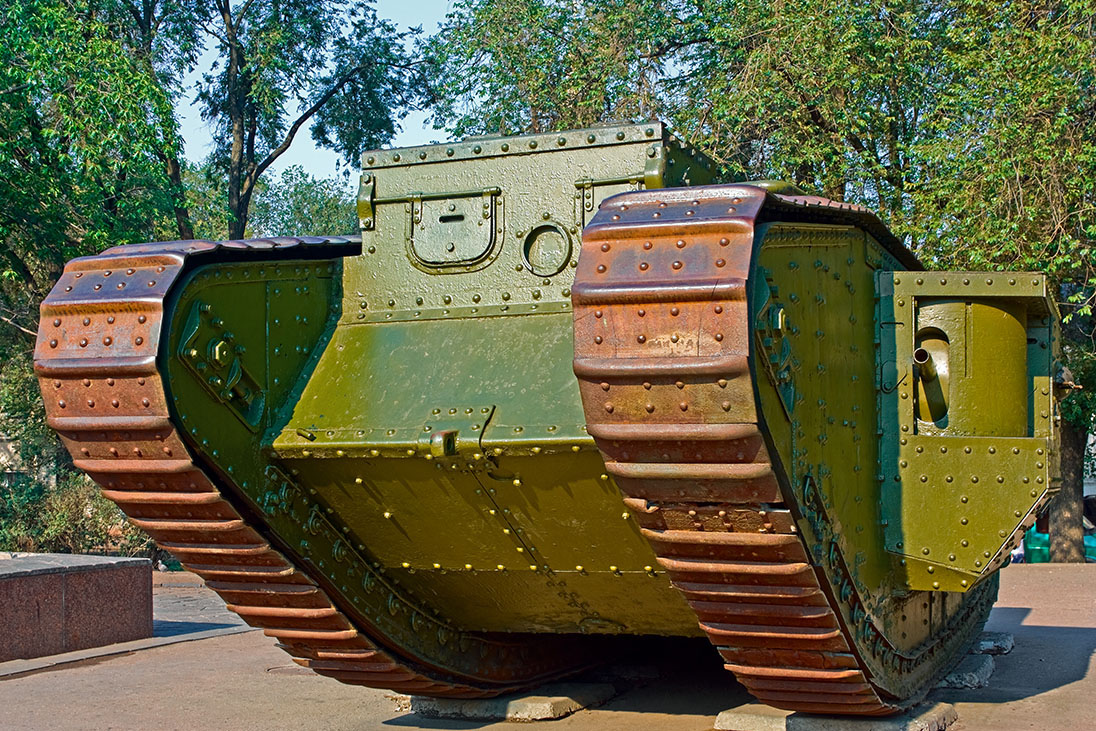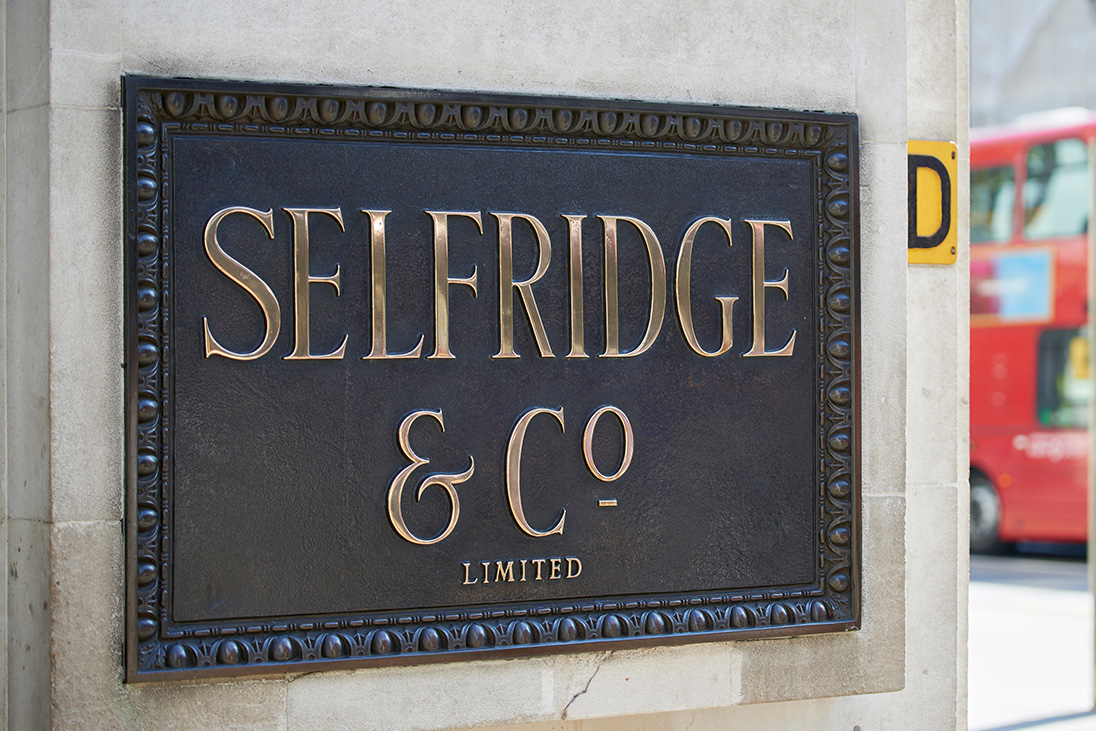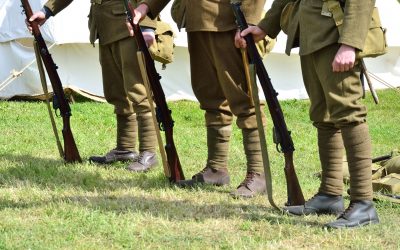In the spirit of service, Rotary clubs during World War One were heavily involved with raising funds for the war effort, supporting refugees and casualties, organising entertainment for the troops, assisting with recruitment and helping to find employment during and after the war.
Some extracts from contemporary Rotary magazines and documents in the Rotary in Great Britain & Ireland archives reveal the following insights:
Fundraising
Most clubs raised funds for the war effort, often joining in Government campaigns. Here are some of the examples:
Belfast Rotary Club: organised its first Flag Day in 1915 ably assisted by the Boy Scouts. On April 30th, no fewer than 1,700 ladies sold miniature Allied Nations’ flags raising £3,000. This amount was administered by the Soldiers’ and Sailors’ Families Association for the benefit of wounded servicemen in the city.
Brighton Rotary Club (originally Brighton and Hove): began a War Savings Group in July 1916 and during War Weapons Week they raised £24,631 (approximately £1.24 million in today’s money). They only spent £15 to raise this sum! As a sign of the times, shortly after the outbreak of war, the club decided that evening dress would no longer be required for evening meetings and that their monthly gatherings should alternate between lunches and dinners.
Rotarians made donations to the Queen Mary Workshops and the Lord Roberts Workshops for disabled soldiers, the Red Cross Ambulance fund and other urgent causes.
They also raised a considerable sum to support the local hospital (now the Royal Sussex County Hospital), which had a debt of £4,000 in 1916 and was in danger of going bankrupt.
Liverpool Rotary Club: started a Roll of Honour Fund with a £1,000 donation, eventually reaching the sum of £92,491.
Bournemouth Rotary Club: raised £24,122 in War Bond Tank Week during 1918.


Bournemouth Rotary Club raised £24,122 in War Bond Tank Week during 1918.
Leeds Rotary Club: managed to raise £1,935 for War Savings.
Portsmouth Rotary Club: In just one week, the club based at the home of the Royal Navy, raised £165,000 for War Savings for the Feed the Guns project.
Bristol Rotary Club: raised £800,000 towards the city’s target of £2 million towards two cruisers. Within 10 days, they had sold £37,000 in War Savings Certificates, plus £56,000 for bonds. Rotarians and their businesses had put up a further £75,000. Altogether, they raised an astonishing £844,000 within 10 days.
Recruitment
London Rotary Club: was heavily involved in street corner recruiting and collecting items for soldiers including books, walking sticks, mufflers, stockings, caps, pocket knives and razors.
Glasgow Rotary Club: established a recruiting committee which gathered over 2,000 names. A battalion for men ‘short of stature’ (less than 5 ft 3 ins tall) was raised in Scotland under the auspices of the Glasgow and Edinburgh clubs.
A joint committee was envisaged, but Glasgow Rotary Club decided to work independently. Apparently, after frequent bar brawls in Glasgow, the cantankerous 18th Battalion of the Highland Light Infantry gained such a fierce reputation that they were nicknamed Devil Dwarfs by the locals. However, the adopted name was the Bantam Battalions.
Edinburgh Rotary Club: helped to form another Bantam Battalion, the 17th (Rosebury) Royal Scots, which comprised 1,000 men. Their clothing was made by an Edinburgh Rotarian in his own workrooms. The club recruited 3,300 men for the Royal Scots.
Entertainment
London Rotary Club: The manager of the Victoria Palace Theatre was a member of the club, so 19 parties and entertainment events were put on for wounded soldiers at 400 a time. Each man was given a good meal and a wallet containing 20 souvenirs.
A visiting Rotarian, writing in The Rotary Wheel in March 1917, commented: “There are some who say our wounded men do not really enjoy such entertainments, but put up with them to cheer up those at home. But this was not what I witnessed, the soldiers ‘came as guests, but left as brothers’.
This is what I saw: the club president and treasurer stood in the vestibule shaking hands with the wounded men as they arrived. Over 400 came from different hospitals around London and District. To see the stream of men, or portions of men, coming in familiar blue suits, some minus legs or arms, others swathed in bandages, all more or less broken in body, but not one of them in spirit, was an impressive sight. It makes one realise what the boys are doing for us out there, and what they suffer in consequence.
A great turkey dinner was given at his store to allow the London Rotary Club to entertain the American Army and Navy on Thanksgiving Day.”
Opposite every man’s chair was placed a packet of cigarettes, a box of matches and a packet of chewing gum. There was also an illuminated card of greeting, bearing the flags of the Allies and the Rotary emblem, together with appropriate words.”
On the site of the old Tivoli Theatre in the Strand stood a large, temporary building known as the Eagle Hut. It was erected by the Americans and hundreds of servicemen used it every night – on Tuesdays, London Rotarians were in charge. One of the club members arranged 28 variety shows and 1,200 men were given hospitality at some time during the 1918 Christmas holidays.
At the invitation of Gordon Selfridge, the American-British retail magnate who founded the London-based department store, Selfridge, a great turkey dinner was given at his store to allow the London Rotary Club to entertain the American Army and Navy on Thanksgiving Day.
The Rotary club marked the entry of America into the war in 1917 with a large dinner at the Savoy Hotel. By 1919, the London Rotary Club had grown to 306 members.


At the invitation of Gordon Selfridge, the American-British retail magnate who founded the London-based department store, Selfridge, a great turkey dinner was given at his store to allow the London Rotary Club to entertain the American Army and Navy on Thanksgiving Day.
Edinburgh Rotary Club: The club’s annual Christmas treat for the children of soldiers and sailors entertained nearly 50,000 youngsters over five successive years. Each child was given free tram transport and received a toy, plus a box of sweets on leaving the theatre.
Liverpool Rotary Club: The club pioneered a scheme to entertain American soldiers on leave. Rotarians offered hospitality in their homes for American Rotarians and their sons on active service in France, to enable them to have the comforts of home and the assurance of a warm welcome.
Several other clubs took up the idea under the Guests in British Homes Scheme and 2,000 servicemen benefitted.
Brighton Rotary Club: In August 1917, club members could be found as stewards at a baseball game between the USA and Canada in Preston Park.
Community
Dublin Rotary Club: provided fortnightly entertainment for wounded soldiers and took 270 of them “in a most hospitable manner” to different golf clubs and to nearby Howth Head to the north of the city. The club’s venue, the Metropole Hotel, was completely destroyed following the 1916 Easter Rising. Much regalia was lost and many Rotarians’ places of business were also severely damaged.
Belfast Rotary Club: raised over £19,000 to construct facilities for servicemen and merchant seamen arriving in the city to have a clean bed with clean linen for one shilling a night, and a meal (breakfast, dinner or high tea) for another shilling. Initially, accommodation was for up to 100 men, but this was soon increased to 300.
Staffing of the Service Club was by Rotarians, their wives, families and friends. Much organisation was needed and equipment was purchased such as a sausage-making machine, which turned out about a ton of sausages every week, sometimes also made available to local hospitals.
In 1917, the club provided a Christmas dinner for soldiers based at Victoria Barracks. The facility also provided workshops for training and employment of wounded servicemen.
Manchester Rotary Club: In response to a national appeal, the club formed a 50 strong Rotary Special Police Force, a group of Special Constables. They went on an eight-mile Rotary Route March and were relieved when not one member fell out of line.
The club was very concerned about the plight of Belgian refugees. A scheme was adopted for their reception and accommodation, often at very short notice, and a hostel was equipped almost overnight. A small auxiliary hospital was equipped and put into operation for the adoption of war orphan boys and also to find them employment.
That service continued until 1930 and was co-ordinated with the rehabilitation of wounded ex-servicemen.
Food parcels were sent to Manchester prisoners of war in Germany, while books, magazines and periodicals were delivered to some 14 ships of the Royal Navy.
The club also supported a Rotary Club Ward of four beds at the Britannia Auxiliary Home Hospital, where members also acted as orderlies for the war wounded soldiers.
Glasgow Rotary Club: The number of sleepers at their Overseas Club during one wartime November month set a record of 3,870. At a Christmas Day lunch, there were more than 200 overseas visitors – Canadians, Australians, New Zealanders, South Africans and American soldiers and sailors.
Edinburgh Rotary Club: provided garden allotments for disabled soldiers, and supplied valuable funds and equipment to local Red Cross hospitals.
Leicester Rotary Club: was involved with a scheme to provide hospitality for overseas servicemen. In 1918, they provided a workshop for wounded soldiers at a base hospital and when the intended use changed, this was handed over to a boys’ school.
Southampton Rotary Club: was involved with the Jobs for the Demobbed project and assisted with emigration fees to Australia, Canada and USA for unemployed ex-soldiers and boys who couldn’t find work at home.
Employment
Liverpool Rotary Club: at the request of the Ministry of Pensions, co-ordinated employment for war orphans and arranged Jobs for Demobs.
Manchester Rotary Club: saw the need in post-war years for the rehabilitation of wounded ex-servicemen and established a similar Jobs for Demobs scheme.
Portsmouth Rotary Club: directed their wartime activities chiefly towards the needs of the wounded and finding employment for disabled soldiers and sailors. In June 1917, the club assisted the funding of invalid chairs for the wounded.
Later, a Rotary Room was provided at the YMCA for disabled soldiers and sailors.
Birmingham Rotary Club: Much activity was taken up with work connected with the war, with many members having experience of working with munitions.
The club also promoted the idea of capturing German and Austrian trade for Birmingham and the country generally, and pressed for a trade fair, which gave birth to the British Industries Fair.
The club arranged entertainment for disabled soldiers and sailors and helped to find work for them. In 1915 the club opened offices, assisted with training, and found work for 1,000 discharged and disabled soldiers.


























































